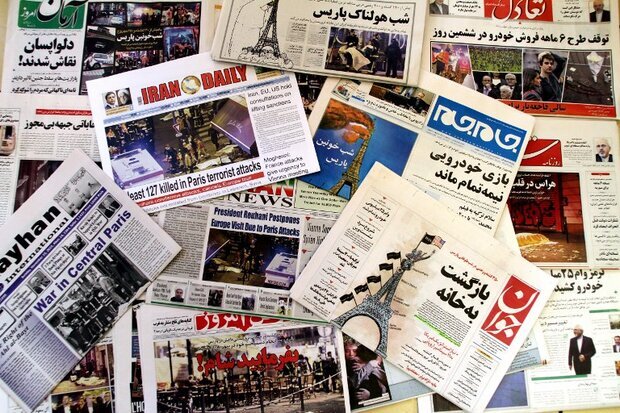Tehran-Riyadh-Beijing message to U.S.

The region must be safe for Chinese business. It is for some time that Saudi Arabia has also been trying to distance itself from the U.S. and adopt a foreign policy independent of the U.S., Arman-e-Melli writes in its editorial.
China's mediation between Iran and Saudi Arabia to break the ice between the two sides sends a message to the White House that Saudi Arabia is trying to play an independent policy in the region.
The talks could have been held in Qatar, the UAE, or any other country, but Tehran and Riyadh decided to hold talks in Beijing to let the U.S. know that China, Iran, and Saudi Arabia have adopted an independent policy.
Saudi Arabia and Iran also convey this message to the United States that if the West is to be present in the region, it must change its policies and adopt a regional policy that favors Iran and Saudi Arabia, and the United States can no longer make the region insecure.
Today, there is a power like China that somehow seeks peace in the region for the benefit of all, which is against the U.S. policy that seeks tension in the region for its own benefit.
Jomhouri-e-Eslami: Positive developments in region
In a commentary, the Jomhouri-e-Eslami listed how Iran, Saudi Arabia, and the region will benefit from the agreement between Tehran and Riyadh.
1. To prevent more losses and even compensate for the losses.
2. Preventing the continuation of the war in Yemen and preventing the influence of some countries in Yemen (such as Israel's influence on Socotra Island)
3. Preventing the increasing influence of the Zionists in the region.
4. Ensuring regional stability, security, and de-escalation in the Middle East.
Etemad: Interests of three countries from the agreement
In an op-ed in the Etemad newspaper, Abbas Abdi, a political analyst, points to China's mediation in brokering agreement between Iran and Saudi Arabia and writes: This agreement has two important features. It is not only between Iran and Saudi Arabia but a tripartite agreement. The second feature is the guarantor power, which China probably is its guarantor.
Regardless of its quality, the agreement has important results for all three countries. It brings Tehran into some important political agreements and global cooperation.
The agreement will increase discipline in Iran's foreign policy.
The agreement removes Saudi Arabia from the sphere of influence of the United States, especially since the main energy consumption market has been moved to China and guaranteeing the market is important for Iranian and Saudi oil sales.
Probably the main winner of the agreement is China, which has both guaranteed its energy (consumption) and developed its diplomatic influence and tied the relationship of the two important countries to their economic agreements with China.
Aftab-e-Yazd: New chapter in ME
Iraq was acting as an intermediary for reconciliation between Saudi Arabia and Iran for some years, but the sudden presence of China in these negotiations was “surprising,” Aftab-e-Yazd writes.
China's mediation as the largest trading partner of the United States of America and Saudi Arabia coupled with the support of almost all neighboring countries and great powers for the reconciliation, show the importance and strength of Iran's position in the region. Besides, it opens a new chapter in global relations and help calm the region.
The move forward to resume diplomatic relations and activate security, economic and cultural cooperation can be considered a positive step in the stability and security of the region. It can also strengthen relations between governments and nations.
Javan: Tehran-Riyadh agreement will isolate U.S., Israel
Apparently, Saudi Arabia has noticed the declining power of the United States on the one hand and Iran's rise in power, Javan writes in a commentary.
These two factors, in addition to the failure of the JCPOA, to secure Saudi Arabia and the American allies in the region, also caused Riyadh to review its foreign policy.
Saudi Arabia has come to the conclusion that in the current situation solving the problems with Iran and getting closer to the Iran-China-Russia axis in the new world order will provide more and better security and interests.
The United States and the Zionist regime can be considered the two biggest losers of the agreement.
Tel Aviv has intended to put a part of its enmity towards Iran on the shoulders of Saudi Arabia by getting closer to it, but the Tehran-Riyadh agreement is a big blow to the plan and will probably have big negative effects on the continuation of the Abraham Accords.
Reducing Iran's tension with some countries in the region will isolate the Zionist regime against Iran and the axis of resistance. It will also curb the efforts of some countries that sought to change geopolitics and create tension in some of Iran's borders by relying on Israel.
Leave a Comment